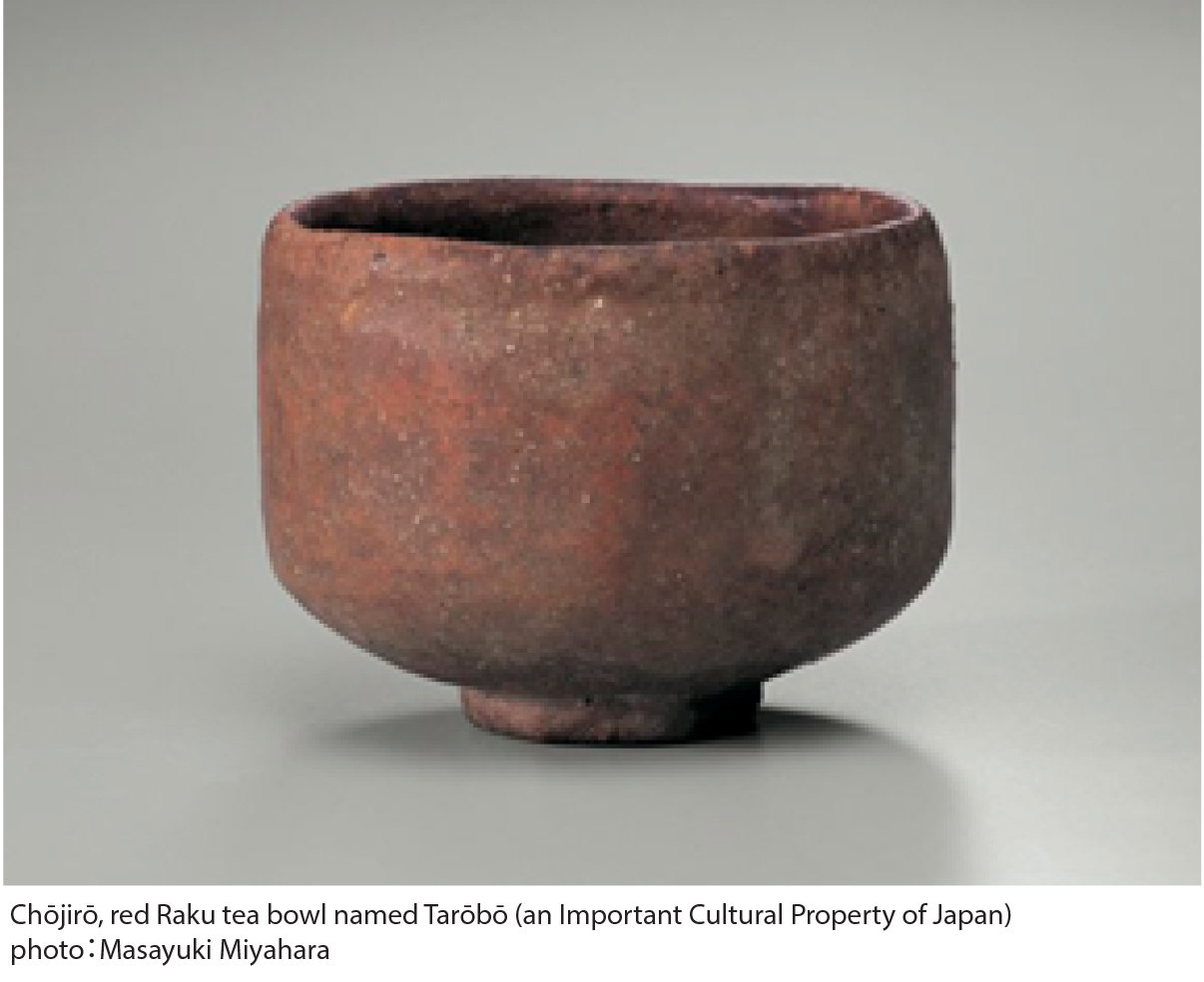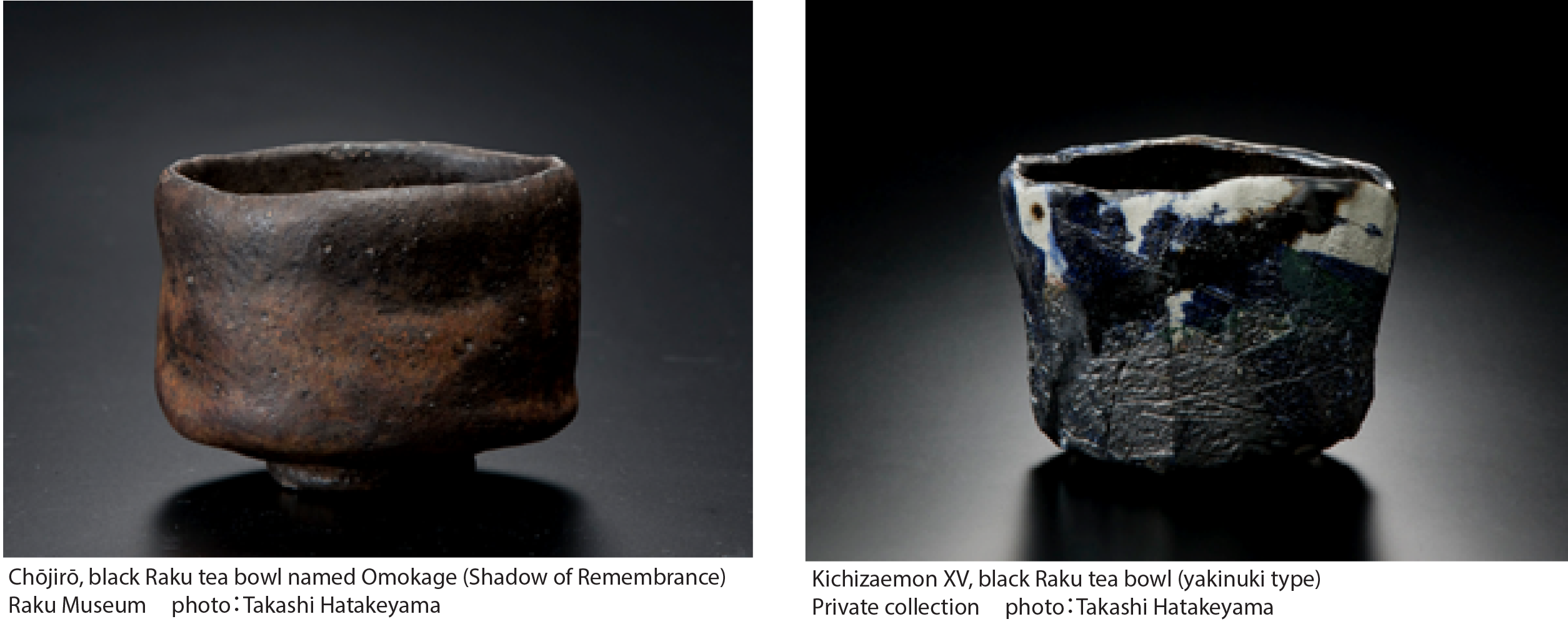


The Japan Foundation and the Raku Museum are very pleased to announce Raku: The Cosmos in a Teabowl, an exhibition presenting 450 years of Raku ware to be held at the Los Angeles County Museum of Art.
Raku ware, a type of Japanese ceramics first made in the 16th century by founding father Chōjirō, has continued to be made by 15 successive generations of heads of the Raku family, and with its distinctive aesthetic, holds an unparalleled place among Japanese pottery. Featuring work by past Raku masters and by the brilliant Honami Kōetsu, a close associate, as well as the wide-ranging activities (not limited to ceramics) of the current master Raku Kichizaemon XV and pieces by his son Atsundo, the future family head, this exhibition is a comprehensive survey of the unique aesthetic and philosophical realm of Raku ware, providing fascinating glimpses into each of the eras it covers.
This exhibition presents 94 works, from the serene, monochromatic teabowls of founder Chōjirō, which most directly reflect the wabi tea ceremony ideals of legendary tea master Sen no Rikyū, to the strikingly original innovations of the current Raku master. We are confident that this first full-fledged show of Raku ceramics on American soil will draw much attention and acclaim.
After its run in Los Angeles, the exhibition will travel to Russia and appear, with partially modified content, at the Hermitage Museum and the Pushkin State Museum of Fine Arts.

Statement by Raku Kichizaemon XV
Raku ware holds a unique place in the culture of Japanese ceramics, and remains as vital as ever today, 450 years after its foundation. The spirit of its tradition, handed down by successive generations starting with the founder Chōjirō, lies in each generation’s creative engagement with its own contemporary era. Within the confines of a small teabowl that fits in the palm of the hand, Raku artists have carried out profound explorations of nature, human awareness, and philosophical issues such as artifice versus nature, randomness versus inevitability, parts and the whole, fulfillment versus lack, and the complete versus the incomplete. Indeed, the interior of a piece of Raku ware shows us “the cosmos in a tea bowl,” evoking everything from a black hole in the infinite vastness of space to the faint trickle of a tiny brook. The essence of Raku lies not in simply carrying on old traditions, but in a constantly evolving avant-garde spirit. Raku teabowls are imbued with a philosophical significance that resonates with contemporary thought, and I am sure they will strike a powerful chord with viewers in the United States and elsewhere in the world.
Raku: The Cosmos in a Teabowl features historic works by past generations, including those designated by the Japanese government as Important Cultural Properties and Important Art Objects, as well as works showing the present and future of Raku by myself (the currently presiding Raku Kichizaemon XV) and successor Raku Atsundo, who before long will inherit the mantle as the 16th generation head. The majority of these are on loan from the Raku Museum in Kyoto. This museum was established in 1978 by 14th-generation master Kakunyū, and the Raku family donated a collection of Raku ware, historical materials, and related tea-ceremony art objects from throughout its 450-year history. The museum’s collection contains many pieces that have been treasured heirlooms of the Raku family and have inspired and served as models for successive generations, who studied them, grasped the essence of the Raku tradition, and went on to develop their own original styles that departed from tradition in creative ways. The Raku Museum is truly an encapsulation of the essence of the Raku tradition over its centuries of history.
Works from the Raku Museum’s collection form the core of Raku: The Cosmos in a Teabowl,along with important pieces from other museums and from the collection of the Omote-senke and Ura-senke Foundation, descendants of tea ceremony forefather Sen no Rikyū who are keeping the culture of the tea ceremony thriving today. Many of these works are rarely seen by the public, even in Japan. The opportunity to present these works and enjoy the deep understanding and appreciation of the American people is truly an invaluable one for me.
Raku Kichizaemon
This Exhibition is Organized by
The Japan Foundation
Raku Museum
Los Angeles County Museum of Art
In cooperation with The National Museum of Modern Art, Kyoto
Assisted by Japan Airlines Co., Ltd.